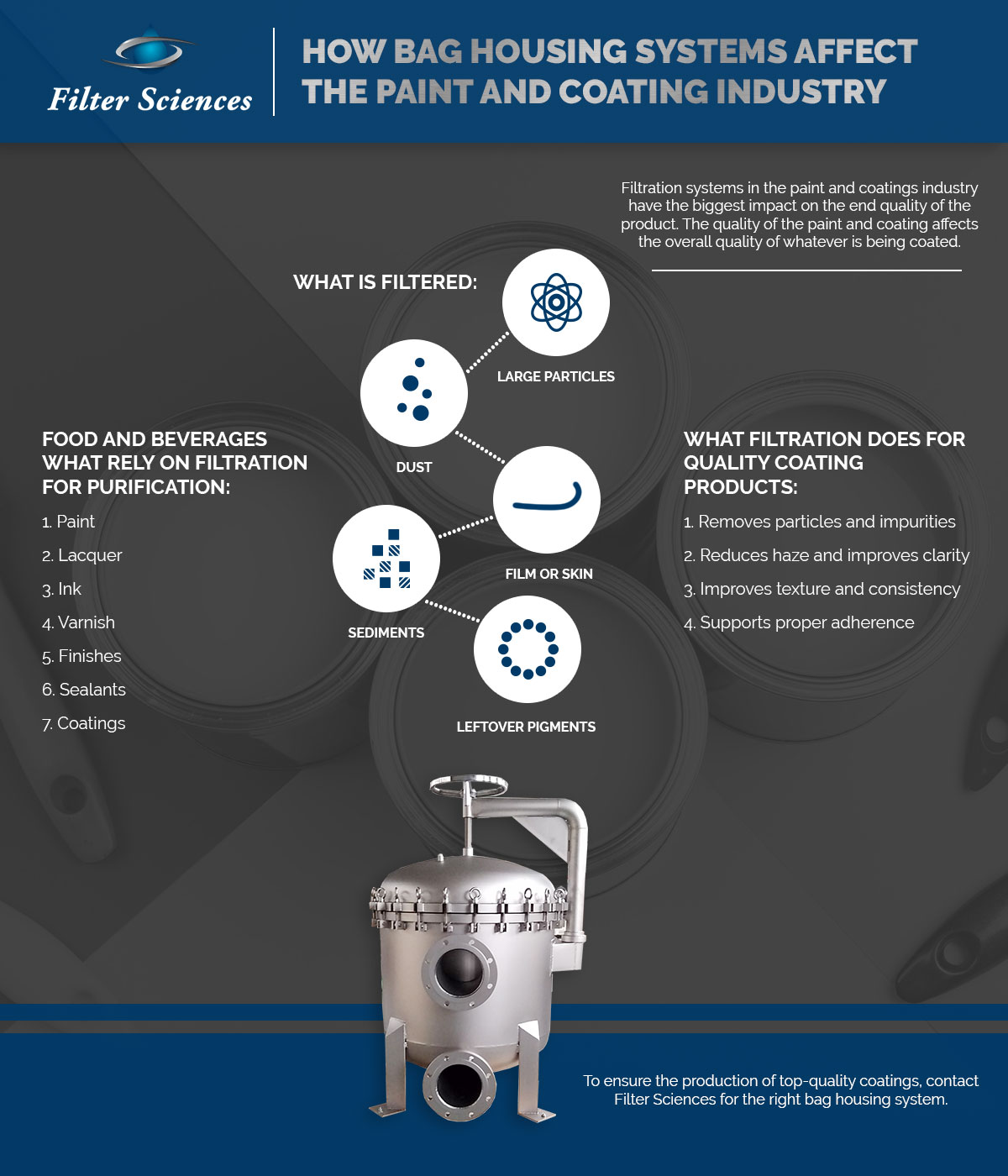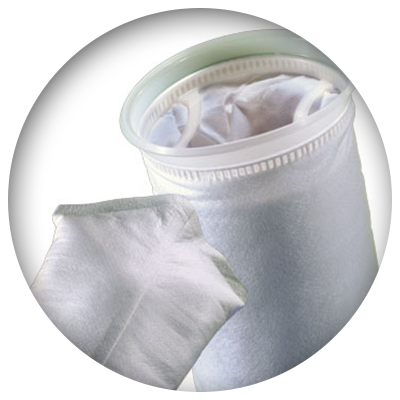Bag Housing in the Food and Beverage Industry
Stainless Steel at Carbon Steel Pricing
In Stock | Next Business Day Shipping

Nothing But Quality Coating
Quality End Products Start With Superior Filtration at the Beginning
Creating top-quality end products begins with ensuring the best raw materials are used. In the coating and paint industry, assuming that the liquid base materials are properly filtered is not a safe bet. Good filtration practice should begin with the liquid raw materials including resin, emulsions, water, oil, and liquid additives that will be combined to create the end product.
During the coating process, other impurities can be trapped, introduced, or created. For instance, some natural oils and pigments can introduce foots — the small pieces of leftover hull that are created during the grinding process — that can create sediment, ruining entire batches of paint. Some ingredients, when left to sit at different temperatures, can create film or skins that, when mixed with the wet coating beneath, can cause lumps that clog product containers and prevent the use of the coating.
Proper filtration is the solution to quality assurance in any coating product. From the first step to the last, ensure that the materials are properly filtered by using the best-quality bag housing units.
Special Considerations in Paint and Coating Filtrations
Unlike other industries where most, if not all, solids must be removed from the liquid to leave behind a purely filtered product, paints and other finishes have a variety of special considerations where some solids should remain — talc, pigments, aluminum flakes — while most others, even those of similar size and shape should be removed. For this reason, a standard bag housing system with a particular flow rate may not be the best answer.
Seeding is another unique consideration for the coating industry. While many pigments initially meet the size requirements to pass initial filtration, over time and through the process, flocculation of pigment particles can occur, creating small seed-like particles. While these may, again, break up and cause no problem, they can remain batched and compromise the integrity of the quality and smoothness of the coating.
At Filter Sciences, we understand the unique needs of each industry that relies on bag filtration and can recommend the best bag housing unit for your needs. And, if we don’t have what you need, our engineers can create one to meet your exact specifications. Contact us for a free quote today.
At Filter Sciences, we use top-quality materials and superior engineering processes to create the best filter bag housing systems available on the market. All of our units are assembled in the US and ready to ship. Contact us for your custom quote today.
Recent Posts
Bag Filtration in Oil Production; Upstream, Midstream & Downstream
Bag filtration plays a crucial role in oil production across the upstream, midstream, and downstream sectors by ensuring the cleanliness of fluids and protecting equipment. Here’s how they are used in each stage: 1. Upstream (Exploration and Production): 2. Midstream (Transportation and Storage): 3. Downstream (Refining and Processing): In summary, bag filters are essential for…
Pre-commissioning Piping
Pre-commissioning of piping refers to the series of activities and procedures undertaken before a piping system is put into operation. These activities are crucial to ensure that the piping system is installed correctly, functions properly, and is safe for operation. Bag filtration is the preferred method to remove particulate, debris, dirt, rust, mill scale and…
FSI Ramping Up Production to Meet Demand
At Filter Sciences our production continues to ramp up to meet demand. Strong demand for both 304 & 316 Stainless Bag Housings (filter pots, filter vessels, filter pods) continues to grow in multiple industries. Our commitment to have inventory on hand is and always will be a priority at FSI. Most all our Bag Housings…

